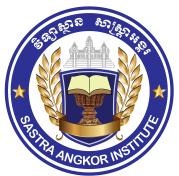
MIDDLE EAST STUDIES CENTER
.jpg)
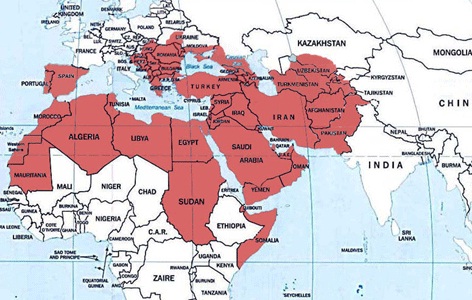

Founded in 2014, the Middle East Institute is the oldest Cambodia -based institution dedicated solely to the study of the Middle East. Its founders, scholar Dr K.K Yıldırım, laid out a simple mandate: “to increase knowledge of the Middle East among the citizens of the Cambodia and to promote a better understanding between the people of these two areas.”
MEI has earned a reputation as an unbiased source of information and analysis on this critical region of the world, a reputation it has meticulously safeguarded since its creation. Today, Middle east studies center remains a respected, non-partisan voice in the field of Middle East studies...
Special Admission Requirements for all candidates
Statement of academic purpose
The statement of academic purpose allows the university to evaluate your ability to succeed academically and the reasons you wish to undertake the degree. Drawing on relevant coursework, professional experience, and other activities, please discuss your interest in human rights, your motivation for applying to this program and your plans for graduate study, and the relation of your studies to your plans upon receiving the degree.
When appropriate, students may also submit a brief supplemental statement. For example, students may wish to submit a supplemental statement to provide information regarding inconsistencies in grades or scores, resume gaps, and special conditions or circumstances that are not revealed elsewhere in the application.
Academic writing sample
The academic writing sample allows the university to evaluate your research, analysis, and writing-skills. The writing sample should be a short paper no more than 1,000 words in length or a similarly-sized coherent excerpt from a longer research paper that you have written for a course. Alternatively, you may provide a focused essay written in an academic style that examines an article, book, issue or event relevant to your field of interest.
Letters of recommendation
If you have recently received an academic degree or have recent academic experience, letters of recommendation from faculty are preferred. If you have not been enrolled in an academic program in recent years, professional recommendations are acceptable.
Students must upload a scanned copy of the transcript or record of academic work (e.g. Web-based transcripts, mark sheets, relevé de notes) from each university-level institution attended.
Do not send official paper transcripts. Applicants who receive an offer of admission will be required to send in official paper documents for verification before the offer is considered official. Do not send official transcripts by mail before being notified by GSAS.
* Schools which you attended, but from which you did not receive a degree, should be listed at the end of the page.
* Study abroad undertaken as part of your undergraduate work does not require uploading of a separate transcript, provided that both courses AND grades are recorded on the main transcript.
* Transcripts that are in a language other than English should be translated into English. The translation must be certified to be an accurate translation of the original and be notarized or otherwise authenticated. Both non-English AND translated transcripts should be uploaded.
All international students whose native language is not English or whose undergraduate degree is from an institution in a country whose official language is not English must submit scores of the TOEFL or IELTS exams. For more information, refer to the GSAS admissions policy for international students.
|
DEGREE: |
Free-Standing Master's |
|
|
|
|
Early Deadline for Fall Admission |
January 15 |
|
Regular Deadline for Fall Admission |
March 15 |
|
Resume/CV |
yes |
|
Writing Sample |
yes |
|
GRE General |
optional |
|
GRE Subject |
no |
|
Miscellaneous |
none |
All applications are reviewed using the same guidelines, and early applicants do not receive priority. The advantage of applying early is that applicants will be notified of the admissions decision earlier than those who apply by the regular decision deadline.
Early application deadline: January 15
All complete applications received by this date will be reviewed during the first round of admissions and applicants will be informed of the admission decision prior to March 15.
Early applicants will be notified that their application has been accepted, denied, or deferred until the review of applicants who apply for the regular deadline (March 15).
Applicants who receive a deferral decision during the first evaluation round will be automatically considered during the regular decision evaluation process and do not need to re-apply.
Applicants who are denied admission during the first evaluation round cannot re-apply for consideration during the regular decision evaluation process. However, candidates who are not admitted to for fall 2012 admission are welcome to apply again the following year.
Regular application deadline: March 15th
All applications received after January 15th, as well as early applications that were deferred during the first round, will be reviewed. All applications must be received by March 15th to be considered for fall 2015 admission.

Prof. (Dr) Kemal YILDIRIM, Ph.D. (Polsci)
President of Middle east studies Center at Sastra Angkor Institute
.jpg)
Dr Subramonian
Head of Research and Management
.jpg)
Prof. (Dr.) Imani Silver Kyaruzi
Foreign Policy Issues – Sub Sahara
.jpg)
Taha Badawi
Environmentalist - Working to Conserve & Protect Red Sea Environment (Marine & Terrestrial).

Dr . A.M Rostami
Ambassador for special affairs to iran

Prof. Dr. Sefik GORGIN
Art and Art history in Middle east and ancient cultures

Prof.(Dr.) Muhammad Omoloja
Intercontinental Relations and Diplomacy

Prof. Safiul Alam
Middle East & Far East Relations – Diplomacy and international relations
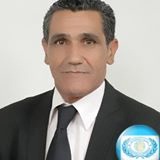
Dr. M’Barek Afekouh
Senior lecturer- Human rights in Middle east
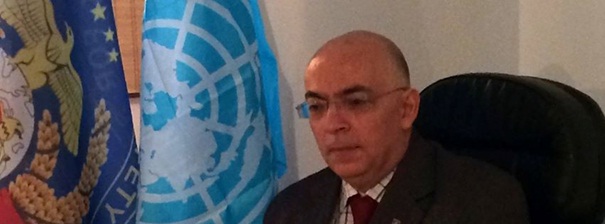
Dr. Haissam Bou SAID
Diplomacy and international relations in Arab world
THE LEADERSHIP DEVELOPMENT INTERNSHIP PROGRAM

The Leadership Development Internship Program at the Middle East Institute is designed to provide students or recent graduates considering a career in a Middle East related field with hands-on experience at a Cambodia -based, nonprofit organization that focuses exclusively on the Middle East. Interns obtain guidance, experience, and exposure to the Cambodia policy and scholarly community while developing professional skills with interns from all over the world.
Regional Specialization in Middle East Studies

Degree candidates who wish to obtain a specialization in the Middle East without seeking an Institute certificate will draw up a program with the help of the Institute's Associate Director. For such a specialization, 3 courses (9 points) will be required, of which three points must be earned through a colloquium or a seminar.
Certificate in Middle East Studies (open to students at all graduate divisions)
To satisfy the requirements for the certificate, the candidate must select a program of study that provides a broad knowledge of the Middle East, together with a specialized knowledge of a sub-cultural area (the Arab states, Armenia, Central Asia, Iran, Israel, or Turkey and minorities living in areas such as Kurds, Assyrians etc ) and its principal language. In addition, students admitted to degree candidacy in a department or professional school of the University must fulfill the requirements for an advanced degree in that department or school.
The certificate candidate draws up a program with the approval of the Institute’s Associate Director. Programs vary, depending on the degree of the candidate's previous preparation, and the department or school in which the candidate chooses to earn an advanced degree.
Courses: Each candidate must complete 24 points of course work as follows:
Two region-wide courses (lecture or colloquium) one in history and one in political science (6 points);
Four other lecture courses or colloquia selected from three different disciplines (12 points);
Two seminars or colloquia (6 points);
In addition to seminars and colloquia specifically listed for Institute credit, candidates, with the approval of the director, may count one seminar or colloquium not primarily on the Middle East only if the candidate's work in the course was concentrated on the Middle East.
Language Requirement: The language requirement is satisfied in full once the certificate candidate has demonstrated proficiency in at least one of the major area languages equivalent to three years of university instruction. A certificate candidate who comes equipped with such proficiency in one of the major languages is encouraged to study a second. Native speakers of one Middle Eastern language must take at least one year of a second area language or demonstrate equivalent proficiency.
The Institute sponsors approximately 5- 10 lunch-time talks per year on topics ranging from art and literature to current events, hosts conferences, and provides a neutral atmosphere for scholarly and student exchanges of views on issues concerning the Middle East, North Africa, and Central Asia. It offers courses and outreach seminars to teachers and adult education groups, briefs journalists and other professionals and generally acts as a clearing-house for requests for information on the region and its peoples by the media, educational professionals, and the interested public, drawing upon the expertise of its own staff and the multi-disciplinary and multi-cultural studies at
SASTRA ANGKOR INSTITUTE IN CAMBODIA
MIDDLE EAST STUDIES CENTER

PhD Programs

The Center for Middle Eastern Studies offers three joint PhD programs with the departments of Anthropology, History of Art and Architecture, and History:
Students of the joint PhD programs complete both the requirements of the related department and the language and area studies requirements established by the Committee on Middle Eastern Studies. In addition to coursework and comprehensive exams, PhD students develop a high proficiency in at least one Middle Eastern language and complete a dissertation based on original research. More details for each program can be found at the links above.
Applicants to these programs are advised to consult the pages in this section, the information in the Graduate School of Arts and Sciences (GSAS) at SASTRA ANGKOR INSTITUTE
1-Changing Modes of Political Dialogue Across the Middle East and East Asia, 2000 thereafter
2-Muslim publics and Extremist Groups in Arab world
3- Global Views of Iran an Nuclear Arms
4- International support for arming Syria Rebels
5- Egyptians and Democracy
6- Americans on Middle east Turmoil
7- Muslims and Democracy
8-Arab Democracy
9-Turkey and Islam
10-US public Policy in Middle east
11-Lebanon’s Muslims: Relatively Secular and Pro-Christian
12- Islamıst politics in Turkey
13- Environmental issues in Middle east
14-The Problem with Turkey's "Zero Problems"
15-Honour killings in Muslim world /middle east
16- Islam and christian relations
17 Are the differences between Alawites and Sunnis doctrinal or political?
18- Roots of Alwaite Sunni Rivalry in Syria
19-America and the regional powers in Transforming Middle east
20-Political Islam in the Arab Awakening: Who Are the Major Players?
21-Egyptian Politics and American Diplomacy
22-The Perverse Effect of Good Governance: Lessons from Morocco
23-Algeria's Path to Reform: Authentic Change?
24-The Battle for Bahrain: Iranian-Saudi Rivalry
25-The Iranian Armed Forces in Politics, Revolution and War: Part One
26-Iran in the Horn of Africa: Outflanking U.S. Allies
27-Post-Mubarak Egypt: History, Collective Memory and Memorialization
28-Turkey: An Important East-West Energy Hub
SASTRA ANGKOR INSTITUTE IN CAMBODIA
MIDDLE EAST STUDIES CENTER
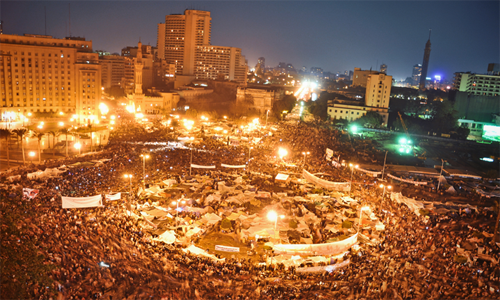
The Middle East Institute of Sastra Angkor is a research institute, conference center, Training, study and library on twenty first-century history located in Middle East Country.
The Middle East Institute's (MEI) mission involves raising awareness of the unique circumstances of the region through research and instructional programs. The MEI has adopted an interdisciplinary approach to the study of the Middle East, and we offer a wide range of educational opportunities.
Through the Middle East Institute, Sastra Angkor is possible to offer a wide range of Skill and Degree through the distance learning from the head Campus.
For more information contract to Dr Kemal yıldırım, the Head of Middle East Institute of Sastra Angkor through the email: conflictresearch@yahoo.com , Tel: 013 69 7777